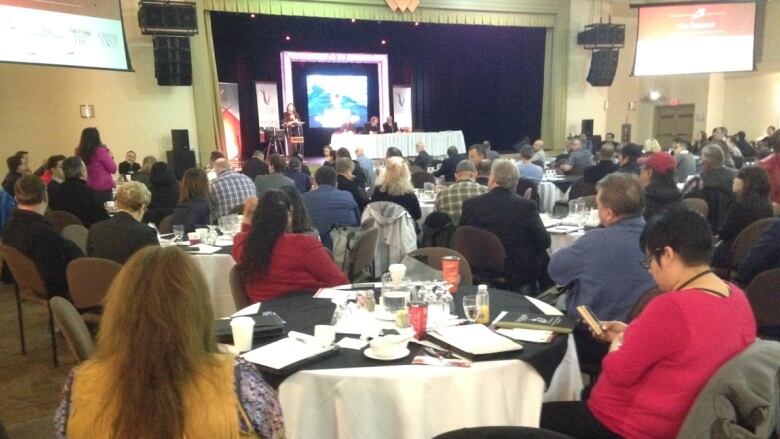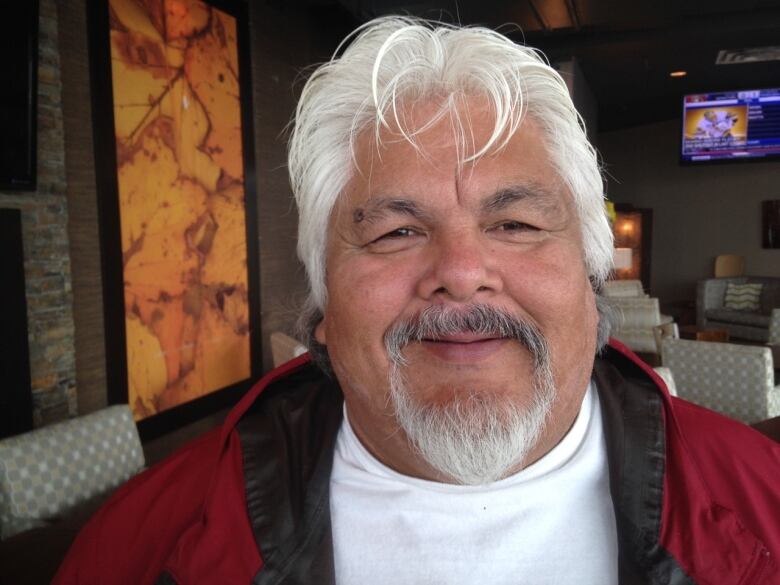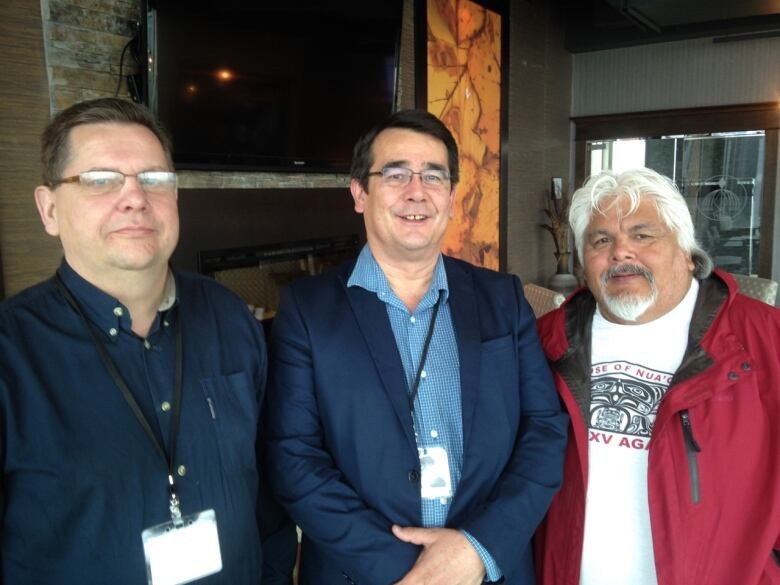First Nations fisheries success stories shared at forum
Delegates at a conference in Membertou, Cape Breton, share fishing and aquaculture knowledge

Close to 300 Indigenouspeople have gathered in Cape Breton's Membertou First Nation to learn aboutnew fishery and aquaculture opportunities at the third annual National Indigenous Fisheries and Aquaculture Forum.
Government and business peoplefrom Canada, the United States and Mexico are making connections, sharing success stories, and learning how to grow and diversity fisheries and aquaculture opportunities in Indigenous communities.
Ted Walkus, thehereditary chief of Wuikinuxv Nationin Rivers Inlet, B.C., said the goal is to createeconomic opportunity by protecting fish stocks and the environment.
"It's extremely important," he said.

Although the tiny B.C. community has a population as low as 60 people during the winter, ithas a success story to share. Walkus said his area has a unique run of exceptionally large Chinook salmon.
The community wanted to preserve the species and create jobs. Through a partnership with two nearby sport fishing lodges, a salmon hatchery was constructed on the First Nation's land that now employs four people.
"When you hire four people out of 60 people in a community, you're making a difference," he said.
Courageous decision
WaycobahFirst Nation in Cape Breton has its own success story.
"Two years ago, the band made a courageous decision," said Don Davis, director of corporate services. It took over ownership of a community trout farm thatWaycobah had been leasing to a private firm.
Since then, the band has grown the aquaculture operation, built a processing facilityand partnered with New Brunswick's Northern Sea Harvest Farmsto distributeWaycobah trout in the U.S.

"It's a good example of doing something that you do best," said Davis. "We knew we could grow the fish. We knew we could process the fish. Where we were weak would be the distribution of the fish to the market."
Millions in revenue
Forty community members now work at the farm and the processing plant. This year, Waycobah will harvest about 400,000 fish and generate about $4.5 million of revenue.
"Our goal is within three years to be harvesting a million trout out of that farm and selling it to the U.S.," said Davis.
Both Davis and Walkus stress the value of outside partnerships.
There's a message to be sent to the non-Indigenous business community that engaging and partnering with First Nations people can be beneficial for all parties, said Chief Bob Chamberlin, chair of the First Nation Wild Salmon Association.












_(720p).jpg)


 OFFICIAL HD MUSIC VIDEO.jpg)
.jpg)



























































































